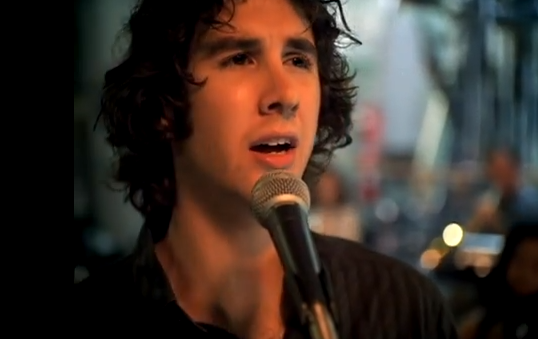 Last week I found myself sitting across the table from my first professional mentor, filling him in on the past few years of life. Though we've kept in touch (and have sent more than a few emails) over the years, it's hard to top a face-to-face conversation with an old friend over a bottle of wine. At the conclusion of our converastion, he looked at me and proudly declared, "You have really grown into yourself. You have really grown up."
Last week I found myself sitting across the table from my first professional mentor, filling him in on the past few years of life. Though we've kept in touch (and have sent more than a few emails) over the years, it's hard to top a face-to-face conversation with an old friend over a bottle of wine. At the conclusion of our converastion, he looked at me and proudly declared, "You have really grown into yourself. You have really grown up."
In truth, I probably shouldn't have landed my first job. Years after being hired, I learned how my mentor had challenged the other two hiring managers at the conclusion of the interview process. While they pushed for the easy choice, he placed all his chips on Amy. For whatever reason, despite what I imagine were probably fairly standard interview responses, he recognized something (he calls it "something special") in me that afternoon from across the table. It compelled him to fight for me and take a risk. In doing so, he helped unlock a door that inevitably led to the opportunities and experience that have set the course of my career.
From time to time, I have had people ask me what is the best piece of advice I can offer newbies just stretching their wings in the industry. Invariably, my response is find a mentor.
When to find a mentor. Whether you're a college student or a high school student or a junior high student or an elementary school student, the time is now. Go job shadow. Pick up the phone. Send an email. Reach out to someone who works in a field you're even mildly interested in. Ask them if you can come spend an afternoon trying on their world. I'm willing to bet almost everyone will respond with an enthusiastic yes.
What to look for in a mentor. Though it's not necessary your mentor work in your field, it's definitely an added bonus to have access to an industry sensei. A mentor who has been in the trenches and in your shoes tends to come at things from a place of greater perspective. They can help you see (perhaps even appreciate) the forest rather than obsessing on the trees. They understand the quirks and joys, the ups and downs. They can talk you off the ledge when you're being unreasonable, and give you a push when it's time to get the hell out of Dodge.
More important than industry is integrity. A mentor shouldn't be a "yes man" (or a "yes woman"), they should be a guiding voice, a sounding board and a no-bullshitter. Look for a mentor who can and will be brutally honest, but also understands the value of nurturing. More importantly, look for a mentor who knows when the time is right to employ one or both of the two. My mentors have inspired me and encouraged me, but in many ways I think the fact that they have pushed and challenged me has been even more significant to my career development. They've asked me to do things that terrified me. They've insisted I do things again and again and again. They've pissed me off and made me cry. They've frustrated me and inspired me. And as a result, I've come out the other end better for it.
It's easy to be a buddy. It's less easy to strike a balance between love and tough love. When you find someone like that, you've found your mentor. Don't settle for the easy and obvious choice. Find someone who challenges you. Find someone who pushes you to grow.
Where to find a mentor. I have been extremely fortunate to find mentors down the hall (and at times, sitting at the desk beside me), but not everyone is so lucky. Social networking is a great way to establish first connections with prospective mentors. Engage in conversation. Get to know them. Feel them out and decide if this is someone you respect and feel can give you sound guidance. When you find that someone, all you have to do is ask.
I hold the belief that the creative industry is built upon a mentorship (or perhaps it's better said, apprenticeship) model. Generations of creatives have taken mentees under their wings, in order to pass on the tricks of the trade. They've refined, edited, torn up, red-penned and demanded do-overs, grooming the next generation to take the reins. I believe that most of us who have had the good fortune to be raised under a mentorship model cherish the knowledge it has afforded us and hope to pay it forward and pass that on to others when the time is right.
All you have to do is ask.